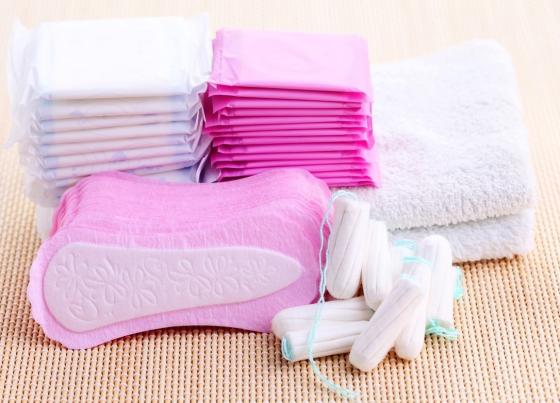‘Tax-free Period, Women Group Appeals to Gov’t'

About twenty women who attended a two-day menstrual health and hygiene management training in Paynesville, have appealed to the Government of Liberia to reduce the tax on sanitary pads coming into the country.
The two-day training, which brought together participants from line Ministries including Health and Education, was organized by the Public Health Initiative of Liberia (PHIL), a local health organization empowering communities to save lives, with support from Global Affairs Canada through WaterAid Liberia. The event focused on hygiene products, supplies, and facilities of infrastructure that would support menstrual health management in public places and homes.
According to the participants, taxes on sanitary pads have made the product very expensive and inaccessible to many in rural and urban areas who must choose between the pads and competing needs. They further noted that prices of sanitary pads in the country continued to increase to the detriment of the vulnerable girls in society due to heavy taxes imposed on its importation into the country.
Elizabeth Hope, a participant from the Ministry of Education, told journalists that most parents in rural communities were unable to afford the cost of sanitary pads to assist their girls to undergo safe menstrual periods.
“Access to sanitary pads is a very big deal in Liberia because currently there is a tax on it. Averagely [in Liberia] a packet of sanitary pads goes for L$250 or 500 which is a challenge for some of our girls in the communities. Some end up using rags or tissue papers which are not good for their reproductive organs. I think it is a very big issue we have to look at. So we are calling on the government to get rid of the tax imposed on menstrual or sanitary pads that will ensure that our young people have access to them that make them stay in school," said Elizabeth Hope, from the Ministry of Education
Hope, however, noted that there’s a need to create more awareness at the school level about menstrual health and hygiene management in the country, noting that a lot of Liberian women are unable to take proper care of themselves during their menstrual cycles (periods).
“If condoms can be free for boys and men, why sanitary pads too cannot be free for women and girls? So we are appealing for a tax waiver on these products,” another participant said.
Ms. Leemu Cooper, another participant at the training, thanked PHIL and WaterAid Liberia for allowing them to know and provide education for other women in communities and schools about menstrual health and hygiene management.
She said, “Government would have to help us if possible scrap the tax or make sanitary pads free for the girls in schools as other countries are doing.”
Speaking earlier, Ms. Joyce L. Kilikpo, told the participants that the training was intended to educate them (women) on the importance of menstrual health and hygiene management and to ensure access to its products that will address the sanitation needs of beneficiaries in Liberia.
She said for the past two years plus, PHIL has been implementing this program, titled “Her Wash”, with funding from Global Affairs Canada through WaterAid Liberia.
According to her, the project looks at addressing menstrual health and hygiene needs for women and girls in Liberia particularly through policy influencing and awareness-raising at a community level.
“As you may be aware,” Ms. Kilikpo added,” places like Grand Cape Mount are relatively conservative when it comes to issues of menstrual health and hygiene. So through this project, we have been able to work along with communities, religious leaders, schools to break the silence on the taboo on a conversation around menstrual health and hygiene.”
Additionally, the PHIL Executive Director said menstrual health and hygiene are commemorated on May 28 of every year and people are seen distributing menstrual pads and related items, which is good, but that is not sustainable until “we can have in place a policy that shows government ownership and investment as well as leadership in addressing menstrual health and hygiene, we will just be symptomatically addressing the issues and not taking it from the roots.”
She, however, said that in the absence of all those policies, it would make it difficult for these issues to be addressed sustainably and one thing the policy seeks to bring awareness to is the taxes on menstrual hygiene products and how those taxes can be reduced or eliminated to ensure that access is ensured, affordable and available.
“We need accessibility, affordability, and availability of these products,” Ms. Kilikpo said. “I mean a girl child should not stop going to school for five days. She is seeing her period because she cannot easily manage her period while she is in school.”
For his part, WaterAid Liberia Senior Advocacy Manager, Sidua Hor, expressed the hope that at the end of the training, participants will go back to their various offices and ensure that menstrual health and hygiene forms part of their programming, noting that the issue of menstrual health and hygiene management is cardinal to our women, mothers, sisters, and daughters.
“So, WaterAid Liberia with support from Global Affairs Canada is implementing this project to provide water for the facilities and some selected schools,” he added.
Mr. Hor further calls on President George M. Weah and the First lady, Madam Clar M. Weah, as well as other heads of institutions in Liberia to prioritize WASH at all public spaces.
